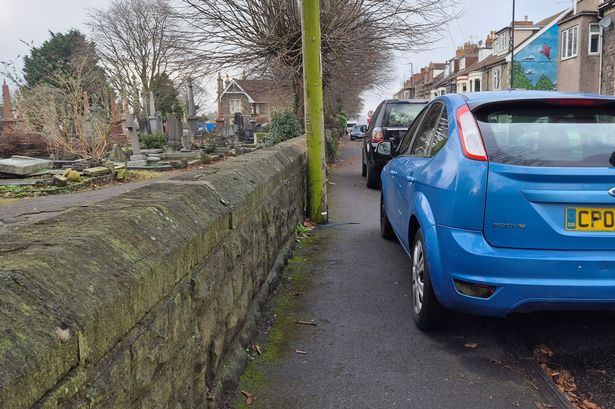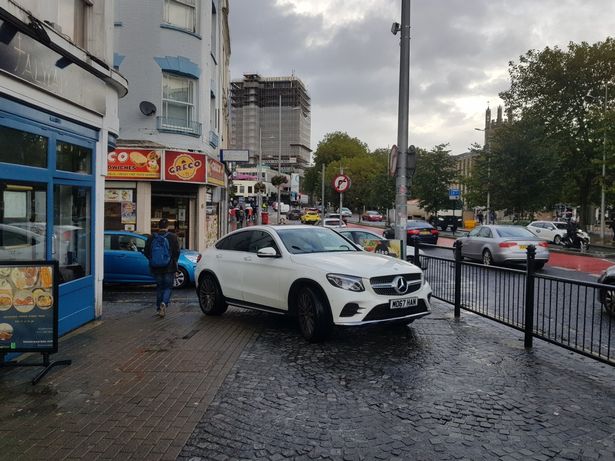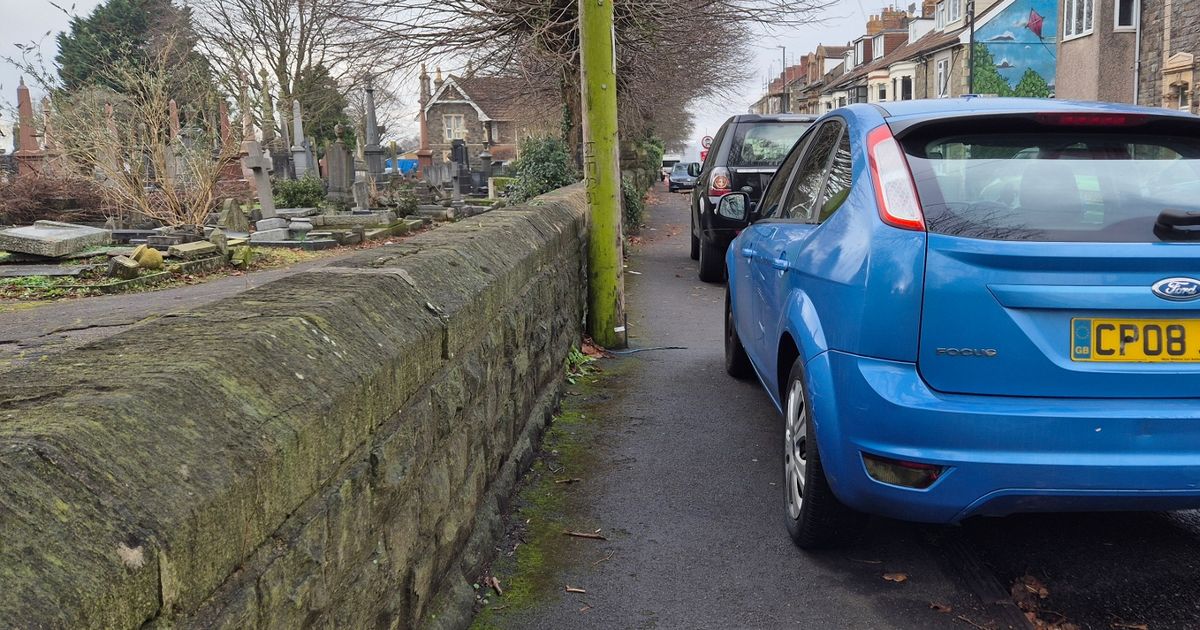The council is keen to tackle ‘inconsiderate’ parking (Image: Alex Seabrook/ LDRS)
(Image: Alex Seabrook/ LDRS)
Rolling out a ban on pavement parking in Bristol would carry “significant risk” as the government might change the law. A leading Green councillor said that the current law means that banning drivers from parking on the pavement would be “cumbersome, laborious and costly”.
Parts of Bristol lack parking spaces meaning drivers sometimes leave cars on the pavement, blocking pedestrians. The problem particularly affects parents with pushchairs and disabled people using wheelchairs, who risk getting hit by a car when having to move into the road.
Before the Greens largely took control of Bristol City Council, in local elections just over a year ago, they launched a petition calling for a ban on pavement parking. 1,500 people signed the petition, which pointed at a ban recently rolled out in the city centre of Sheffield as an example.
Now however, a ban in Bristol appears unlikely any time soon. The former Conservative government consulted the public in 2020 about changing the law to make rolling out a ban easier for councils to do so. But a summary of responses was never published, nor the next steps on the law change.
According to Green Councillor Rob Bryher, who chairs the kerbside and parking task group, the council risks having to “go back to the drawing board”, if plans for a ban began and then the government does eventually change the law. But there is also “substantial risk of doing nothing”.
‘Cumbersome procedure’
Speaking to the Local Democracy Reporting Service, Cllr Bryher said: “The problem with the current laws around prohibiting pavement parking is that local authorities outside London must use a procedure that is cumbersome and often relies on going through a laborious, costly and long-winded Traffic Regulation Order process.
“Green MP Carla Denyer [who represents Bristol Central] has raised parliamentary questions and now tabled an Early Day Motion to attempt to get the government to provide a policy direction for local authorities across the UK. We have heard positive noises that the government is planning to announce this, but it has still not occurred.”
Drivers in Sheffield are banned from parking on pavements in the city centre, after Traffic Regulation Orders were introduced there. Anybody caught parking on the pavement within a certain area is fined. In Bristol, the council could decide on rolling out a ban in a certain area, but a blanket ban across the city would first require a change in the law.
Early Day Motions are a tool for MPs to put public pressure on the government to act on a particular problem. They suggest a topic for the House of Commons to discuss, but few are ever debated. However, if lots of MPs add their name to the motion, that shows a strength of support.
 An SUV parked on a busy pavement in the city centre(Image: Alex Seabrook )
An SUV parked on a busy pavement in the city centre(Image: Alex Seabrook )
Cllr Bryher added: “There is significant resource and capacity risk for Bristol to decide a course of action on pavement parking only to find that new national legislation or guidance completely moves the goalposts and causes us to go back to the drawing board. The further we get into our four-year term of office, the greater the pressure and need to assess this risk against the substantial risk of doing nothing about pavement parking.
“Pavement parking presents significant accessibility and inclusion issues, with communities across Bristol being negatively impacted by inconsiderate pavement parking and its knock-on effects on pavement use by wheelchair users, parents and carers with prams, and other pedestrians.
“The Labour government owes it to these people affected to move with much more urgency and stop denying us the ability to create more accessible and inclusive streets. This inaction is costly. We will continue to monitor the situation closely and urge Bristol’s residents to write to their MP to ask them to sign EDM 1178: Pavement parking.”
Parking on pavements was banned in London in 1974. Elsewhere in England, parking on pavements is permitted, unless specifically banned by a council. These bans affect certain areas and need a Traffic Regulation Order.
Fines can also already be given out if the vehicle is considered to be causing a dangerous blockage, as the Highway Code states: “You MUST NOT leave your vehicle or trailer in a dangerous position or where it causes any unnecessary obstruction of the road.”
The Department for Transport is exploring how to make getting a Traffic Regulation Order easier, due to the current “unnecessary bureaucracy”.
https://tinyurl.com/vu6y7aadhttps://bit.ly/41EZjzx
